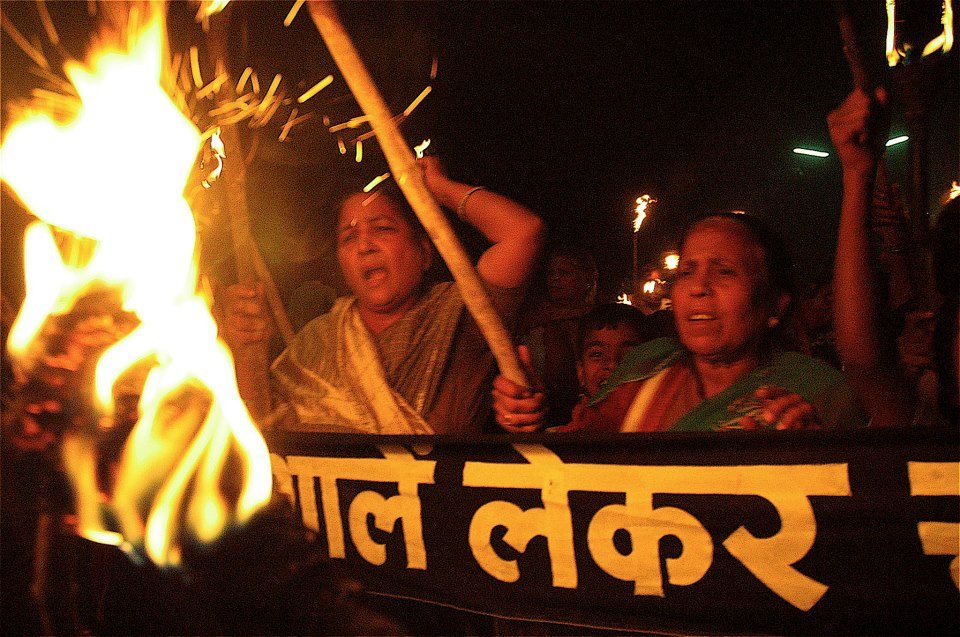After The Gas (Part 5.)
Sathyu Saranghi, tells the story of the early weeks after the disaster. He describes a community taking a crash course in activist politics and goes on to wonder about his own, growing role in assisting the Survivor’s movement.
It was interesting to observe how the disaster and its aftermath quickly became a crash course in the politics of corporations and governments.
The role of governments and their attitude towards common citizens, self-serving politicians, factory bosses who did not care about workers and other people’s lives, the poor being forced to fight for their rights – such issues were suddenly being discussed on every street corner. When supplies to the camps were suddenly cut off and the camps were wound up within a week of the disaster, hundreds of survivors marched demanding that Governor K. M. Chandy request urgent help from the central government.
Instead, there came orders to close down the relief camps. Operation Faith was over and the government wanted people back in their homes.
As weeks went by, there remained no doubt that, left to its own devices, the local government would continue to neglect survivors and it would take more than a few hundreds marching on the seat of power to get a response.
Carbide’s Lies and Deceit
Meanwhile, Union Carbide was in full swing with its PR campaign. Corporate officials were telling the world’s media that the leaked gases were like tear gas, and unlikely to cause lasting damage.
Medical professionals were flown to Bhopal by the corporation. I never saw them help treat any victims, they appeared to be there to endorse the corporate view in press conferences. The press reported that Carbide was buying up Bhopal doctors.
If the magnitude and complexity of the disaster were overwhelming, coping with Union Carbide’s spin was equally challenging.
With such a lot going on, and so much to be vigilant about, there was little time to ponder my own future. Questions as to whether, how and how long to stay on in Bhopal never entered my mind. Thanks to gifts from local, national and international supporters, we volunteers had places to sleep and meals; but we spent most of our time in the communities of survivors we had by then befriended.
Perhaps it sounds odd, but amidst all the sadness these evenings were quite enjoyable, with people often singing songs, playing music and sharing stories full of rare humour.
You can read the complete Bhopal Marathon publication online here



